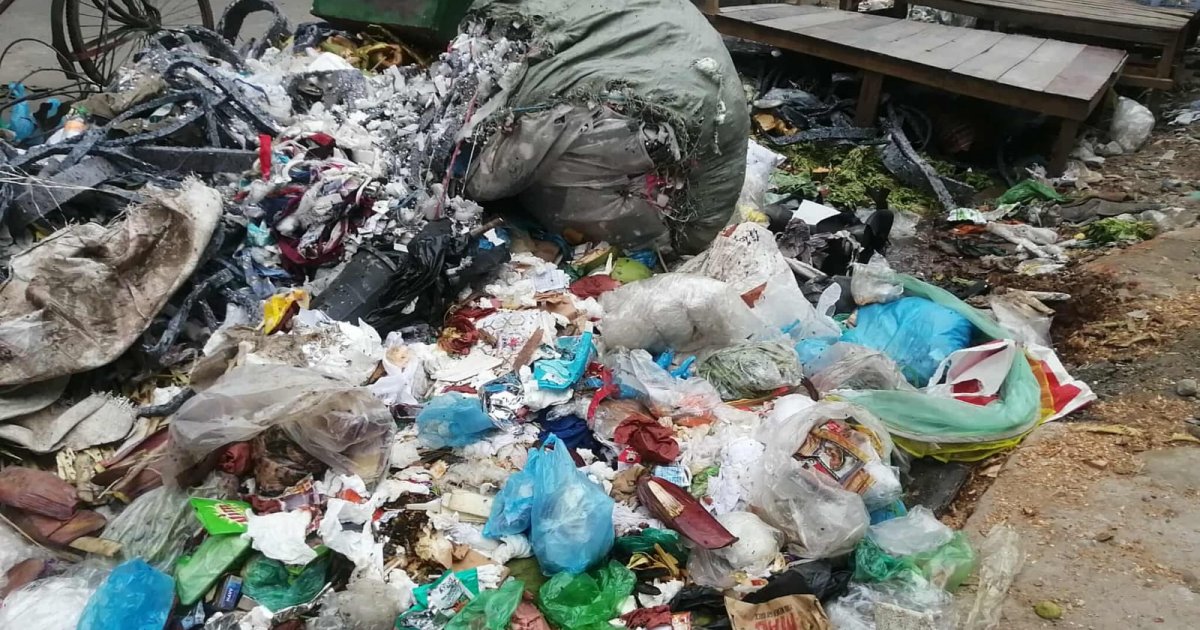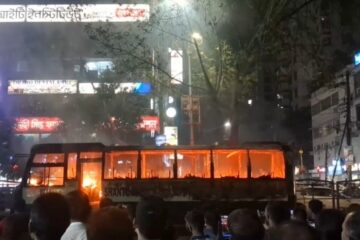A car races down the elevated expressway.
Its passengers admire the city lights, one hand clutching a phone to film the view. An empty packet of chips flies out the window.
Another rider drops a sauce container to “keep the car clean.”
The road below takes the burden, as always.
This careless act is now routine across Dhaka.
Banana peels, food scraps, and plastic waste line the pavements while pedestrians, used to the stench, walk past with their noses covered.
The city, once called the “Venice of the East,” now drowns in its own waste.
From car windows to apartment blocks, the story repeats.
One resident flings tissues and wrappers from the sixth floor into a shared space between buildings, a spot already filled with garbage from others. No guilt, no second thought.
The mindset: the city corporation will clean it up.
Urban planners say this indifference reflects a deep civic crisis.
“A system is needed, but we can’t hide behind that excuse,” said Jahangirnagar University professor and urban planner Dr Akter Mahmud.
“Dhaka’s drains are clogged with plastic and household waste that we ourselves dump. Then we blame the city corporation for waterlogging. This lack of civic responsibility is a major reason our waste management fails.”
He believes awareness must begin early.
“Children should be taught at school why cleanliness matters — through action, not just words. At home, elders must set the example,” he added.
“But behavioral change will take time.”
According to government data presented in parliament, Bangladesh’s 12 city corporations produce around 17,000 tons of waste daily.
Of this, 3,213 tons come from Dhaka South, 3,400–3,600 tons from Dhaka North, 2,135 tons from Chittagong, 1,000 tons from Narayanganj, and 4,000 tons from Gazipur.
The rest of the cities generate less than 500 tons combined.
Despite this enormous output, garbage piles still dominate corners of the capital — often dumped in front of tea stalls or left festering on sidewalks.
Dhaka South City Corporation’s Chief Waste Officer, Air Commodore Md Mahabubur Rahman Talukder said: “Every Saturday, we conduct cleanliness and mosquito-control drives. We’re distributing leaflets and raising awareness during Friday prayers in local mosques, with the help of community leaders.”
When asked why there isn’t a broader media campaign, he replied: “We find area-based physical campaigns more effective than large-scale media promotions.”
He added that DSCC has launched a pilot project installing small dustbins in Sayedabad.
“We’ll expand it to every ward if residents respond positively.”
Dhaka North City Corporation Administrator Mohammad Ejaz said DNCC is engaging with young volunteers and magistrates to promote civic awareness.
“We remind people constantly that good citizens don’t litter. This message must be repeated until it sticks.”
Not long ago, in 2016, nearly 6,500 dustbins were installed across Dhaka.
But poor maintenance led to overflowing bins, and within months, most were stolen.
Urban planner Akhtar Mahmud calls this the “dual nature” of city dwellers.
“At home, we keep things spotless. But in public, we think it’s someone else’s job. That mindset must change.”
Until then, Dhaka’s roads will keep carrying the proof of our forgetfulness, one thrown wrapper at a time.



